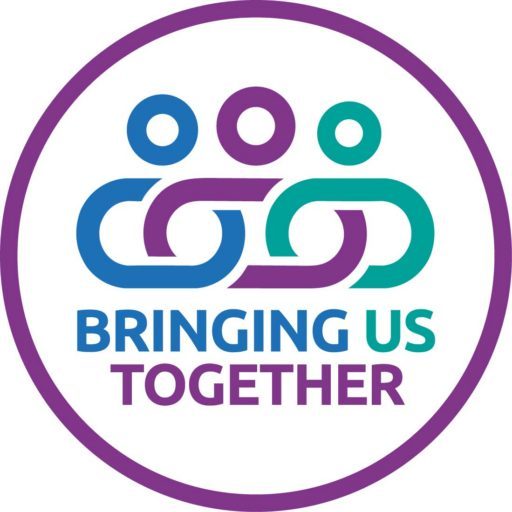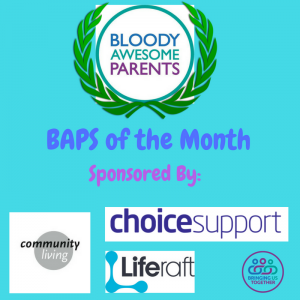Running successful Parent Groups
There are so many parent groups out there. Some provide support to families, some provide activities, some are trying to change the way their LA works, some are campaigning to make changes, some are there so families can just meet and chat. Parent groups are invaluable to families.
However, many parent groups suddenly disappear. Why?
Katie and I have both set up and run groups; we’ve also walked away or moved on from some of them. So we have a good idea of what goes wrong, what works well and we wanted to share with you some things to consider when running successful Parent Groups.
Today, we are sharing an overview of ten things to consider, a way of starting to think about how your group works. Something to think about and some questions to ask – both yourself and your group.
Over the next few months, we will be going more in-depth into each of these topics, so don’t forget to sign up to make sure you don’t miss an instalment.
Ten things to consider when running Parent Groups
 1. Values:
1. Values:
Each organisation is different. That’s a good thing or life would be very dull. When people come together to set up a group, they usually have certain Values such as “making a difference” or “”friendship”.
Sometimes these values change so perhaps they become about “being the best” or “making a profit”. This isn’t wrong but everyone involved needs to know and needs to agree.
When a groups’s values changes but not everyone is on board with that change, people start to walk away and disengage.
So think about what the values are of your organisation/group; why do you put in the often unpaid hours to make it work? Does everyone know what the group’s values are? Think about your own values, are they the same as the group?
2. Communication
Yes, it’s good to talk. However, it is also important to know that what you are saying is being received and understood. How do you communicate with the people who are part of your group? How do you communicate with the other people helping to run the group?
Do you presume that if you send an email, everyone sees it? Do you presume that if you put it on a Facebook page, everyone who likes your page will see it? Do you have a mailing list? Do you use it properly? Is your communication clear – or perhaps you forget that you have been involved in lots of conversations and some people may not know what you’re talking about? Do you appreciate how the written word can be misconstrued?
So think about how you communicate with your members and with other people running the group?
3. Measuring Success
How will you know when you have been successful? How do you measure how successful your group is?
Is it a coffee morning which is well attended? Is it an email from someone saying “thanks so much, that really helped me today”? Is it a large membership? Is it a large Facebook group? Is it a change in local policy or a school offering to change something for one child?
Do you even measure your success? Do you worry about it or not? Do you know why you should measure your success? Do you know how to start?
4. Egos
A difficult one. Normally groups are made up of similar types of people and this is great but it can cause conflict. Do you have anything in place for when egos start to intervene in the running of the group?
Do you have a few strong personalities in the group who often take over? Do you have one or two strong voices who are members but not part of running the group? Do you have any strategies to cope with strong personalities? As a group and as an individual?
5. Leadership
Who leads the group? Is it a joint effort, do you each have defined roles of responsibility or is it one person making all the decisions?
Is the leader also the person looking after finances and bookings and memberships and marketing and communication? Or do you have different leads for each area?
How are decisions made? Is everyone involved or is it a small group?
This also goes back to Values. Do the people making the decisions know what the group’s values are? Do they have the same values?
So think about who leads your group, is this the right person? (If not, see disagreements and problems). Does this work for your group?
 6. Members
6. Members
How do you recruit new members to your group? How do you deal with issues about a member – perhaps they have bad mouthed you on Facebook without speaking to you? How do you find a balance between wanting more members and actually meeting the needs of the current members?
What role do your members play? Are they just people who meet for a coffee but have no say in how you run? Do they get to have a say in how you are run? Do you know your members or are they just a name on a list? Do you offer something for each of them or is it just the majority?
So start thinking about your members, what they bring to the group and if their role is clear – both to them and to you.
7a. Marketing:
How do you tell people about your group? How do new people hear about you? Do you have a website? Do you have a social media presence? Do you know how to use that to it’s full potential? Do you have a website? Who updates it?
What marketing do you use? How do you use it? Who is responsible for it? How do you evaluate if it is successful?
7b Marketing Tools
A quick overview of the tools available and how they can be used effectively.
8. Feedback
Do you get feedback from your members and other people running the group? How do you get it? What do you do with it?
Do you invite people to feedback – not just the forms that any funders require you to complete but feedback about what you do as a group and how people feel about that? How do your members think you could improve? Do you know? Have you asked?
How could you get feedback? Is it better for it to be anonymous or named? What if the feedback is negative? How do you get back up and do it all again?
9. Disagreements and problems
Do you have strategies in place for when there is a disagreement or a problem? What about if the hall you use suddenly becomes unavailable or the rental price increases? What if the person who does most of the work suddenly moves out of the area? What if money goes missing? What if a member places a complaint to your funder? What if no one shows up to events? What if you take a personal dislike to a member? What if you are having a bad day and snap at someone?
Do you have anything in place to deal with this? Do you know what to do? Is one person designated this role or do you have a small team of people? Do you just hope that everything goes well and worry about it when it happens?
10. Review
Do you regularly review what your group is doing? Do you sit back and look at what it is doing, what it was set up to do and is there anything you could do differently? Is there something you don’t do but you could? Is there anything you do which no one enjoys doing but you’ve always done it so you keep at it?
How often do you review your group and how often do you make changes?
What about you?
Obviously the ten things above are just a starting point. A way of starting the conversation. Things such as finance, funding and policies also have a part to play but we wanted to cover some basics.
 However, the biggest question to ask first of all is why are you involved in the group?
However, the biggest question to ask first of all is why are you involved in the group?
Are you doing it to help others or is it for you?
Neither is wrong. Sometimes you can do this for yourself, to give you a role and something else to focus on, whilst also helping others.
However, it is good to know for yourself why you are doing it. Be honest. If you are doing it because you’ve always done it and you’re scared of walking away or letting someone down then this can have a negative impact on you and your own happiness. Remember, you are important.
If you are doing it and loving it, then keep going. If you are doing but not loving it, is it because the group isn’t what it was or is it because their values don’t work for you?
What questions do you need to ask yourself and your group?
Don’t forget to sign up for updates so you don’t miss the rest of this series.
Mum to three great kids, each with a different SEN.
Transplanted from the NW to the SE.
Co-founder and Director of Bringing Us Together





![11 steps to success [01]](https://bringingustogether.org.uk/wp-content/uploads/2015/04/Screenshot-2015-04-19-14.28.30.png)



